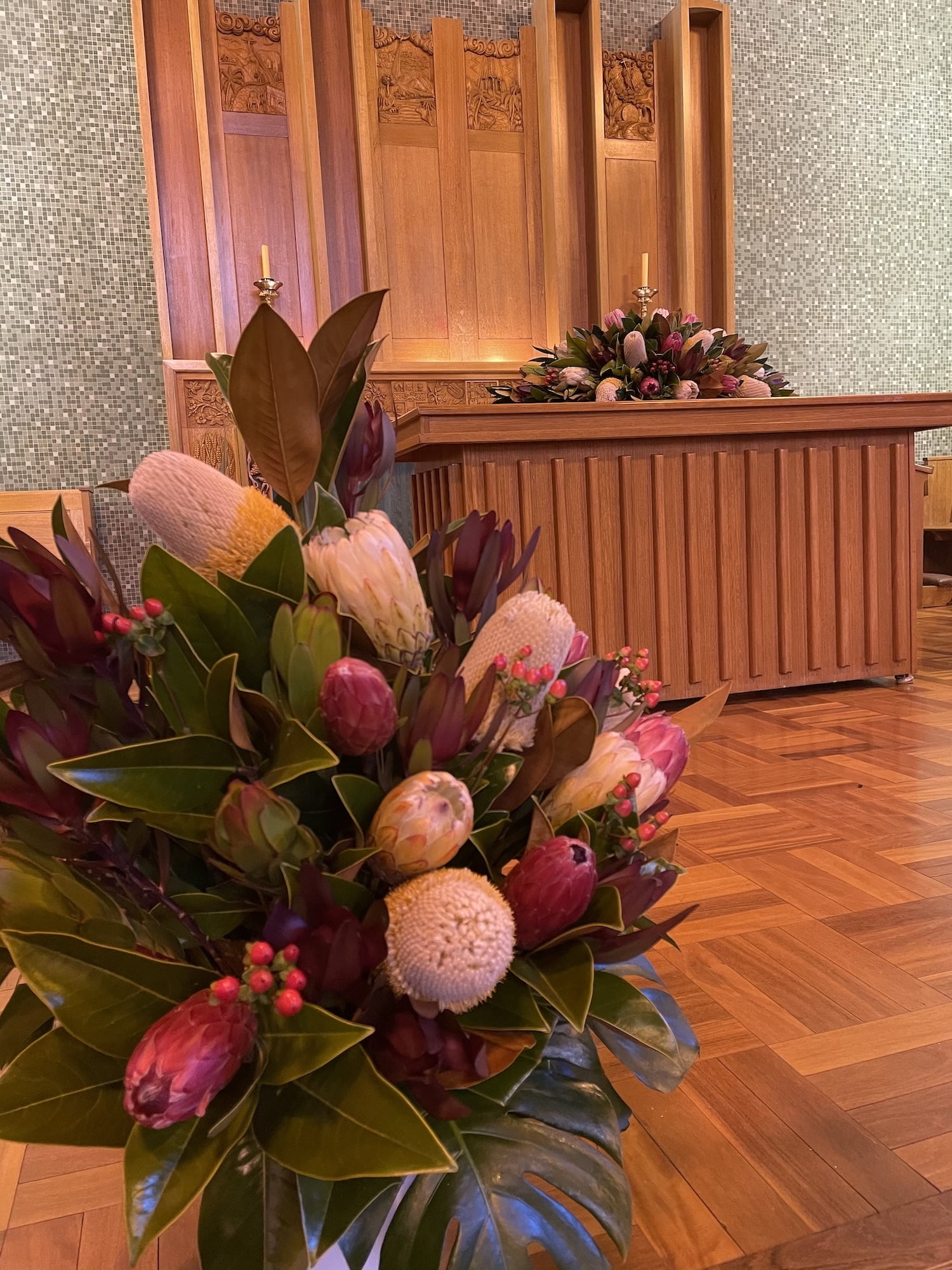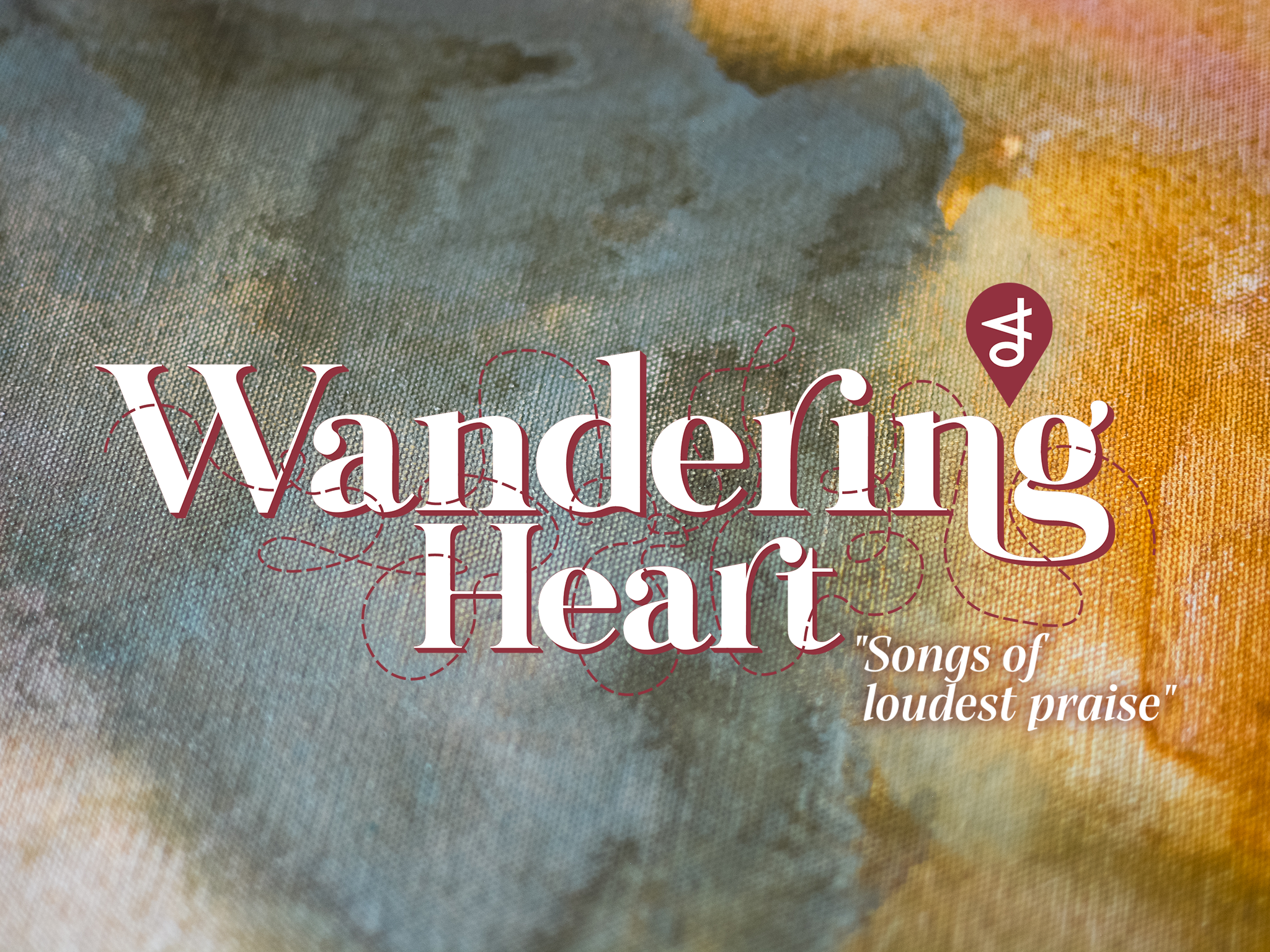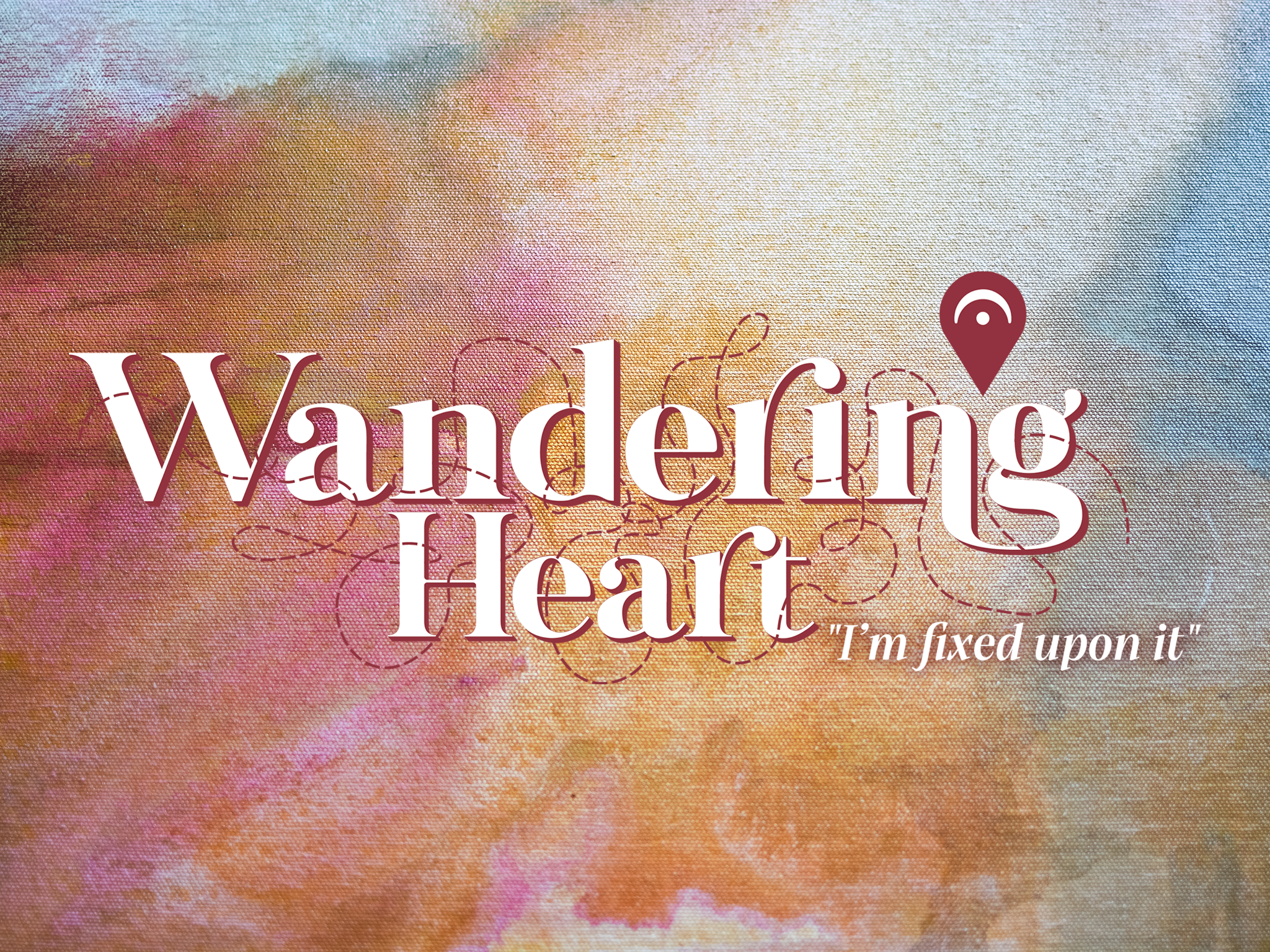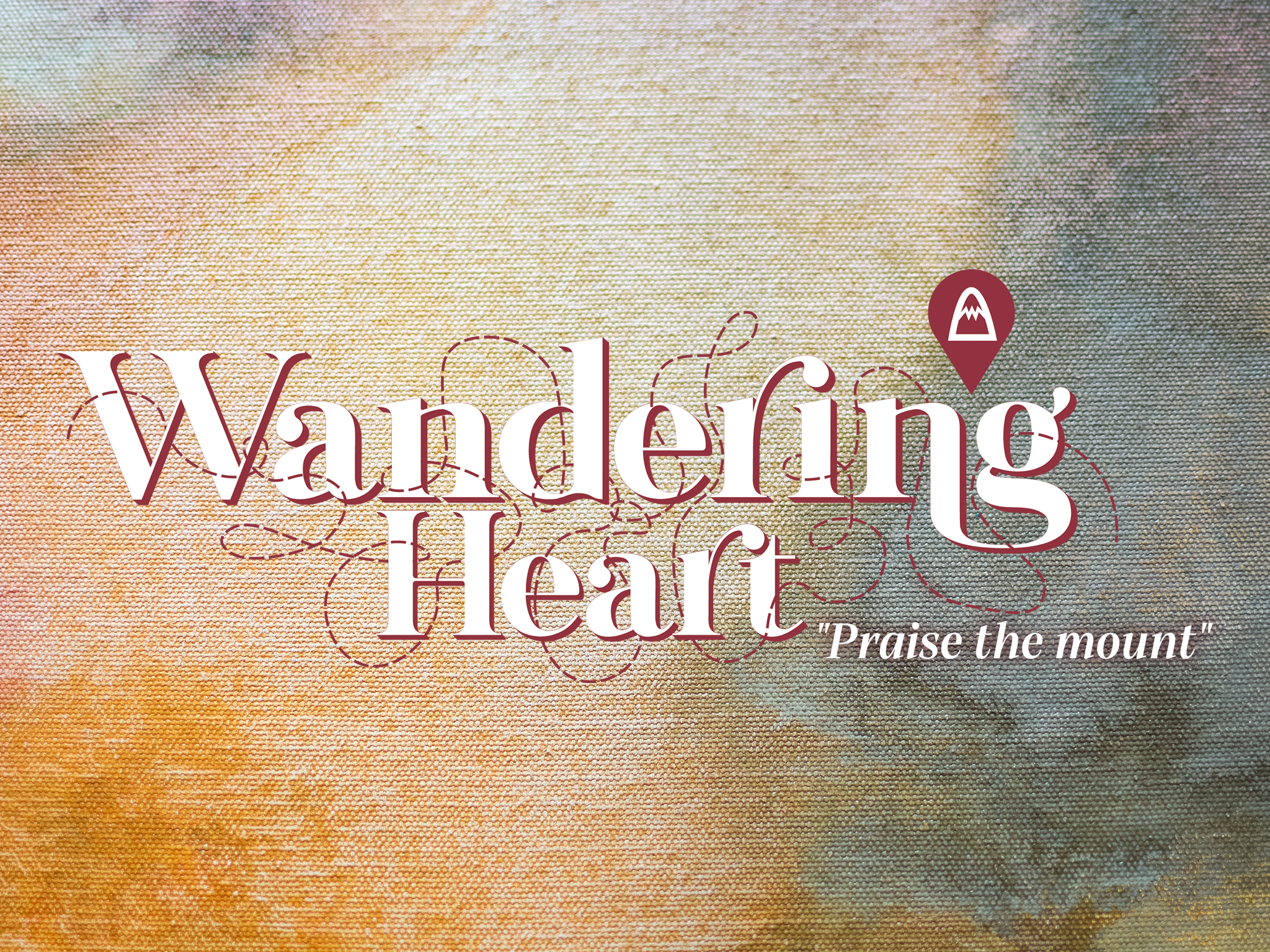life on earth as it is in heaven
Reflection for a funeral
Colossians 3:12–17
As a general rule, Estelle B did not engage in the scandalous practice of marking the pages of books. Certainly not in pen.
So when she did mark one portion – of the Bible, no less – and in pen! – she must consider it of very great importance indeed.
I can’t tell you what meaning Estelle found in these verses of this letter; whether it was lasting meaning that endured through life’s various seasons, or whether it revealed ever new meaning through those changing times.
I’m not sure I would tell you what meaning or meanings Estelle found in this passage, had I known to ask her while I had the time. That’s her story, it was her meaning to share or not.

However, her rule-breaking underlining of this passage seems to commend it to us today, as we reflect on Estelle’s life, her faith, and the Sacred Story that so shaped her living. So what we can do, then, is to accept Estelle’s implicit invitation, and listen to this passage, and discover meaning for ourselves.
We may want to recall that we are listening to a letter written between the early 60s and perhaps 80s – 00 60s to 80s; written to the church in Colossae, which is now no more that crumbled ruins beneath almost 2000 years of dust, in Turkey. It was one of three thriving textile manufacturing cities in the Lycus valley, steeped in Greco-Roman culture.
For the early followers of Jesus – as for us today – many different religions, philosophies, moral and ethical codes abounded. Evidently, members of the Colossian church were including add-ons from other religions and philosophies, alongside the emerging rhythms and practices of the church. This letter seeks to remind followers of Jesus that nothing else is necessary when we choose to live out his teaching, his way. It is as simple and – as we’ll see – as challenging as living what Jesus lived and taught.
So that bearing the name, people of God, the letter reminds the church that we therefore bear the holiness and love of God. In the Hebrew Bible, or Old Testament, prophets tell the people that God makes us holy because God is holy and we are enfolded into God. It’s a gift, a transformation into fulness of being.
Simple.
And challenging. Because it is not only what we receive. Choosing to follow God, we choose a way, as the letter describes, of compassion; kindness; humility (humbleness of mind); meekness – or gentleness; patience (longsuffering).
Why add more demands and obligations, when these practices are demanding enough, the letter seems to say.
What do these characteristics look like in practice?
The practical enactment of this way following Christ, according to the letter, is in our walking beside each other in support and encouragement – bear with, carry – in often uncomfortable difference – bear with, longsuffering, patience.
It’s in our forgiveness of each other, which flows from our own experience of God forgiving us. As I reflected on this quality, I was reminded of a story Jesus told, of what this does not look like. A person begs his master to forgive a massive debt rather than throw him in prison, and it is forgiven. He turns around and demands payment of a debt owed to him, or the imprisonment of his friend. That is not how forgiveness works, Jesus says. The forgiveness we receive, deeply understood, accepted, and fulfilled, flows from us into forgiveness for others. Forgiveness is meant to be paid forward. And that is a demanding discipline to practice.
The practical enactment of this way of Jesus is in our peace-filled hearts, in our carrying, and sharing the peace that Jesus gives, models, teaches.
The letter exhorts followers of Christ to take that teaching deep into our beings, so it pulses like the blood in our veins or moves like the breath that carries your voice and emotion and the Spirit of the Source of Life – let that teaching inhabit your being, the church in Colossae heard, then it shapes our being so we speak and act with wisdom, find gratitude to be our first response, to inspire the Song of God to ring out through us with joy. So inhabited by Jesus’ teaching, we speak and act, for example, a commitment to justice, such as that of the Methodist ethos that shaped Estelle, and forms a pillar in the ethos of the Uniting Church still today.
Because, as much as in this moment we are grateful for our trust and hope – or for Estelle’s if not our own – that Estelle is now most fully enfolded into God’s embrace in a way we cannot understand, she’s among the saints in heaven, we might say – what a passage like this encourages is that heaven is not the goal. We pray ‘your will or way be done on earth.’ ‘As in heaven’, yes, but on earth. God forgives, Jesus lives, for the renewing and fulfilling of our life, which is, for now, lived here. God bestows their holiness, Jesus embodies their love, to make a difference in the world they created – to transform us for making a difference in the world humanity has distorted. Heaven, we hope and trust, is the fulfilment of that transformation to our fullest being. And it begins, with us, here on earth; it begins, with God, in love so profound that in order to remember, it will cause us to transgress the most sacred of rules preventing the marking of books with pen. Amen.





Leave A Comment